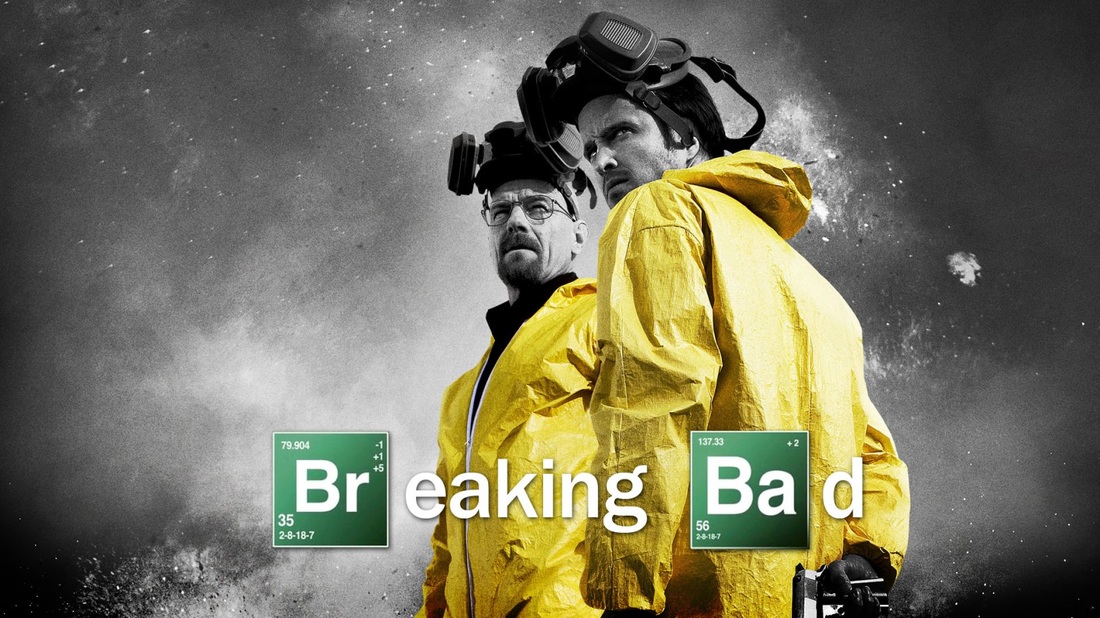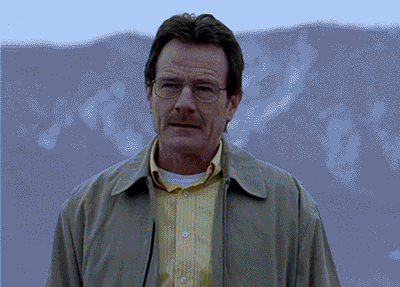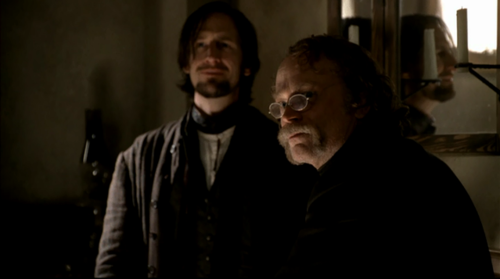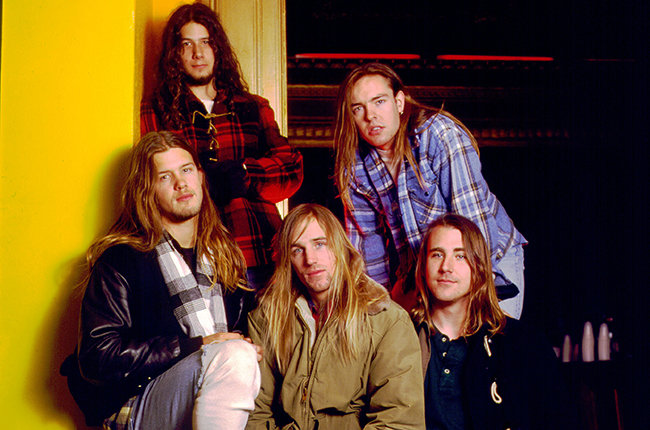|
Walter White's behemoth arch in Breaking Bad will perhaps go down as the most complex character development in television history, and that uncanny transformation is attributed to Bryan Cranston's brilliant performance. In just five seasons, viewers witnesses a tender, affable science teacher transform into a vile, loathsome kingpin. White's metamorphosis is the result of hubris unlike any other, and Cranston's fierce complexity resonates throughout the series. However, underneath all of White's determination and grit lies a dying man's compassion and humanity. Lest the viewer not forget, White's initial reasoning for this titanic transformation is his cancer, a cancer that eats away at his soul. In this heartbreaking scene from the first season, White's family stages an intervention in which they plead with Walt to treat his cancer with chemotherapy. His wife, Skyler, passes around a Talking Pillow that grants the person in possession permission to speak. When Walt is finally allowed an opportunity to hold the pillow, he declares that he wants a choice, the choice to say no to treatment. What follows is an emotional confession from a broken man never feeling as though he has had a chance to truly live. Experiencing Walt's sense of humanity and compassion so early on in the series is what drives the viewer to continue rooting for him, even as they witness his vile transformation from protagonist to antagonist. It's a complex performance very few can pull off, but Bryan Cranston carries it with confidence, grace, and ease.
Stay positive, Andrew
0 Comments
Five Moments of Honesty in Television – Number Five: Reverend Smith and Doc Cochran in Deadwood10/12/2015 David Milch’s Deadwood captured a gritty 1870's Dakota Territory and the citizens existing within its nearly lawless terrain. Milch's ensemble of captivating actors helped drive his dense dialogue, often exploring themes of corruption, misogyny, and violence. With so many deviant characters deliciously dominating the screen, it was often refreshing to watch a few purely good citizens surviving within the ranks. Two of those characters were Reverend Smith and Doc Cochran, portrayed by Ray McKinnon and Brad Dourif, respectively. Reverend Smith begins to suffer from a medical condition that gradually causes his mental and physical collapse, and it is devastating to watch his zeal progressively diminish. In this scene, Smith is examined by the prickly yet always sympathetic Doc, and the Reverend confesses his agony over the mental anguish in which he is subjected. However, always a man of faith, Smith attributes this torment to the Will of God. He says, “This is God's Purpose, the not knowing the purpose is my portion of suffering.” Not understanding Smith's relentless devotion, Doc replies, “If this is His will, Reverend, He is a son of a bitch.” The always altruistic Reverend takes little offense to Doc’s blasphemous remark, and the two share a moment of silence. It is deafening. So many layers exist within the stillness of this scene, which is akin to watching two quiet flames fiercely flickering in the night.
Stay positive, Andrew Eager to shed a dark past with hope for the future, Shannon Hoon's song – his very first – opens with despair (“I don’t feel the sun's coming out today”) and concludes with an optimistic yearning to transcend that despondency (“When life is hard, you have to change”). It's a simple tune about having faith in the ability to overcome obstacles in the pursuit of artistic dreams, yet its profound message preaches resilience through transformation: “And when you feel your life ain't worth living You've got to stand up and take a look around You look way up to the sky, yeah. And when your deepest thoughts are broken Keep on dreaming, 'cause when you stop dreamin' It's time to die." Rumor has it that Shannon Hoon wrote this song after a three-day cocaine binge, which is heartbreaking to know that he died only a few years later due to an overdose. However, this inspirational tune is immortalized, capturing the transformative essence of an artist wanting more out of life. In fact, a line from the song is inscribed on Hoon's grave, “I know we can't all stay here forever, so I want to write my words on the face of today and they'll paint it.” May we forever heed Shannon Hoon's advice and continue dreaming, writing, and changing.
Stay positive, Andrew Five Positive Jams – Number Two: Yoshimi Battles the Pink Robots Part One, by the Flaming Lips10/8/2015 A fantastical tune about fighting the forces of evil, this epic journey follows Yoshimi as she prevents robots from destroying humankind. As jovial as it is inspiring, the listener can’t help but dance-fight along with each determined verse. “Those evil-natured robots, They’re programmed to destroy us. She’s gotta be strong to fight them, So she’s taking lots of vitamins. 'Cause she knows that it'd be tragic If those evil robots win, I know she can beat them.” It's a song about hope, a song about discipline, a song about perseverance.
Keep fighting evil, Yoshimi. We'll fight along with you. Stay positive, Andrew The Hold Steady has always possessed a knack for combining gritty imagery with relentless determination. Known for their self-referential songwriting, themes from the band’s entire canon emerge in this one single tune. In fact, a seasoned Hold Steady listener (there's a devoted fan base dubbed the Unified Scene) will recognize many of lead singer Craig Finn’s callbacks to earlier songs: Massive Nights, Positive Jam, and How a Resurrection Really Feels. But at its core, this song is a love letter to fans, with Finn sincerely concluding, “We couldn't have done this if it wasn't for you.” Although each self-reference may not entirely resonate with new listeners, it is the inspiring chorus that preaches a universal message. And with a song title after my own heart, Craig Finn truly delivers the song's mantra by chanting, “We gotta stay positive.” Whoa-oh-oh-oh, whoa-oh-oh-oh, whoa-oh-oh-oh!
Stay positive, Andrew |
Archives
April 2017
FootnotesSome thoughts on art, life, and theatre. Stay positive. Categories |







 RSS Feed
RSS Feed